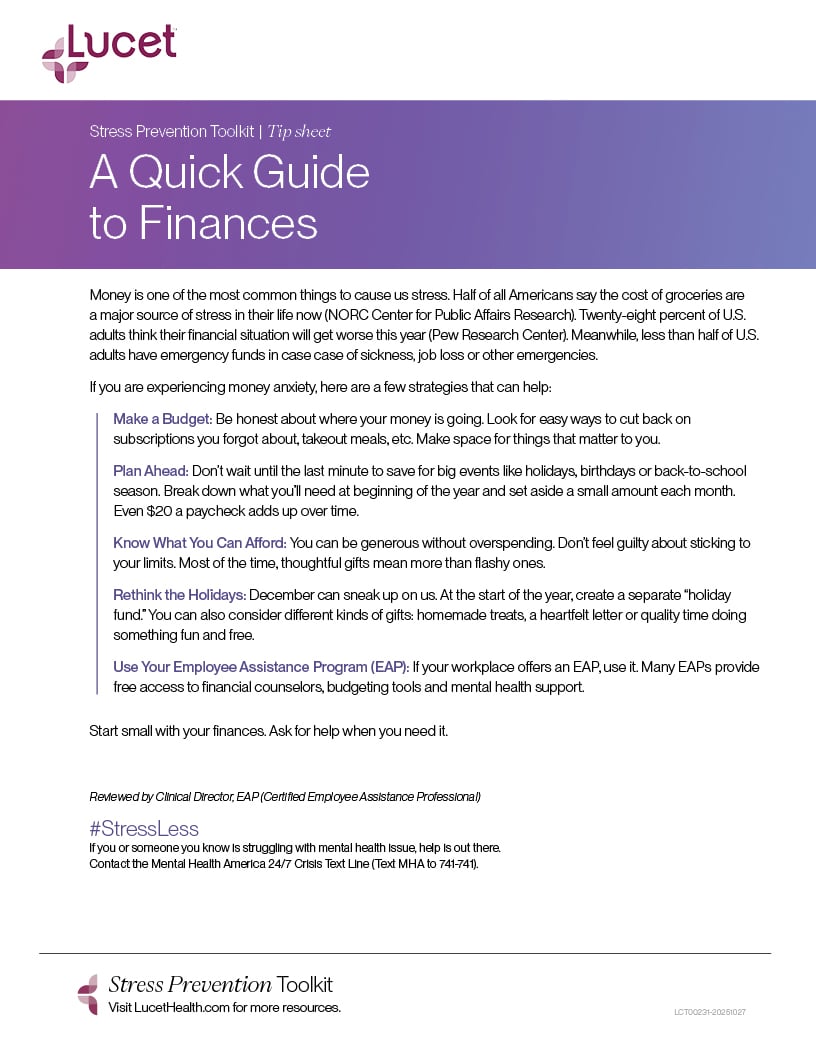A Quick Guide
to Finances
Money is one of the most common things to cause us stress. Half of all Americans say the cost of groceries are a major source of stress in their life now (NORC Center for Public Affairs Research). Twenty-eight percent of U.S. adults think their financial situation will get worse this year (Pew Research Center). Meanwhile, less than half of U.S. adults have emergency funds in case case of sickness, job loss or other emergencies.
If you are experiencing money anxiety, here are a few strategies that can help:
- Make a Budget: Be honest about where your money is going. Look for easy ways to cut back on subscriptions you forgot about, takeout meals, etc. Make space for things that matter to you.
- Plan Ahead: Don’t wait until the last minute to save for big events like holidays, birthdays or back-to-school season. Break down what you’ll need at beginning of the year and set aside a small amount each month. Even $20 a paycheck adds up over time.
- Know What You Can Afford: You can be generous without overspending. Don’t feel guilty about sticking to your limits. Most of the time, thoughtful gifts mean more than flashy ones.
- Rethink the Holidays: December can sneak up on us. At the start of the year, create a separate “holiday fund.” You can also consider different kinds of gifts: homemade treats, a heartfelt letter or quality time doing something fun and free.
- Use Your Employee Assistance Program (EAP): If your workplace offers an EAP, use it. Many EAPs provide free access to financial counselors, budgeting tools and mental health support.
Start small with your finances. Ask for help when you need it.
#StressLess
If you or someone you know is struggling with their mental health, contact the Mental Health America 24/7 Crisis Text Line by texting MHA to 741-741.
